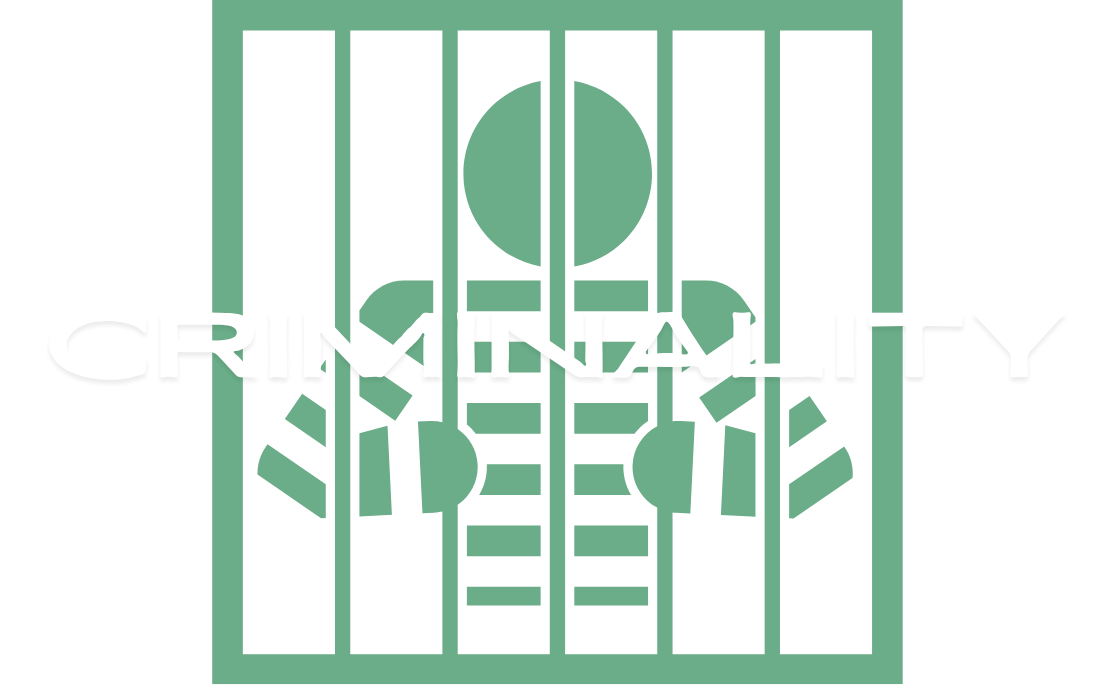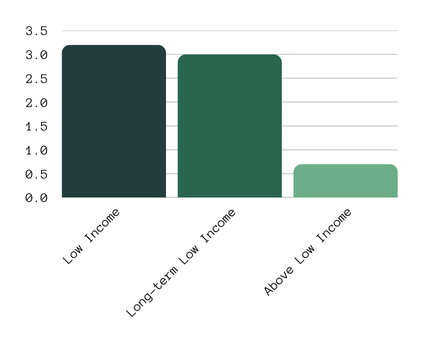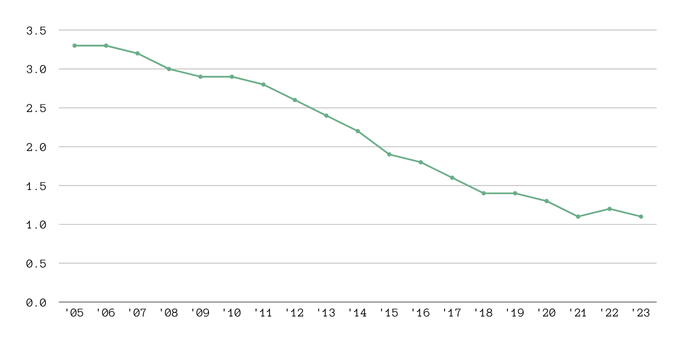
Statistics sometimes show higher crime rates among people who have moved to the Netherlands. You might hear this argument used against refugees, but that is not the whole story. Another part of the story is the connection between crime rates and socio-economic factors. Aspects such as age, gender, and wealth are linked to the level of crime in a population. When these factors are taken into account, the disparity between criminal activity in asylum seekers and Dutch citizens disappears. This suggests that the observed higher levels of criminal activity are less about one's immigrant status and more about the challenging socio-economic circumstances that many asylum seekers live in.
Read more about the living environment of asylum seekers here.
Crimes rates compared by income, in 2019
Fears based on falsehoods
People are scared the arrival of refugees will lead to a less safe society with higher crime rates. This feeling does not come out of nowhere; the narrative on immigrants has got increasingly negative. Some of the widely held beliefs are inaccurate or miss nuance, but they still induce fear. For example, the claim that the number of crimes committed by refugees has increased is untrue. Rather, the crime rate among immigrants and refugees has been decreasing for years.
Similarly, people fear that the opening of a COA location will lead to increased crime in their neighbourhood. Research shows that this isn't the case; crime rates in neighbourhoods do not change when a COA-centre is opened.
“I get put in a category that I’m violent and aggressive and will start stabbing everyone when I’m angry. It is totally against everything I have been working for for years now”
Percentage of immigrants that is an official suspect
Criminal asylum seekers staying in the Netherlands
Refugees who are granted residence status are unlikely to commit crimes. In 2023, only 1.1% of immigrants were suspected of criminal activity. The Dutch government can deny an asylum seekers’ residence permit if they have committed a serious offence, which helps prevent dangerous criminals from getting Dutch residency.
Additionally, the chance of asylum seekers committing crimes is closely linked to how likely they are to receive asylum. In other words, refugees who settle in the Netherlands are the least likely to commit crimes compared to other asylum seekers.
“They only publish the bad things, so they can reach people who hate refugees. That’s what I see. It is right to publish the bad stories, but also the good stories”
Refugees as victims
An aspect that is often forgotten about when people talk about crime and refugees is that asylum seekers are more likely to become victims of a crime. They are more likely to be in a vulnerable position. They often don't speak the language, don't have a good support system, and don't know how the justice system works. Furthermore, many asylum seekers are afraid that reporting a crime might hurt their chances of getting a residence permit. Because of this, crimes go unreported, leaving asylum seekers in an even more vulnerable position. This compromised situation is exploited by criminals, with crimes such as abuse, human trafficking, and financial scams.
The group overshadows the individual
Media coverage has a big influence on how the population views a group. Researchers have analysed and compared previous studies that evaluate the media coverage on immigrants and its effects. They found that people often think and talk about refugees as one cohesive group, and fail to recognize them as individuals. The media consistently portrays minority groups like refugees in a negative light, making them seem like a danger to safety, economy, and hygiene. Moira Grant McLoughlin further enhances this finding in her research. She found that most stories about refugees exclude their voices and perspectives. By doing so, the perception that ‘all refugees are the same’ is strengthened even more, a stereotype that affects many.
To read more about the depiction of refugees in the media, go to this article.
Percentage of victims of crime with a migration background





